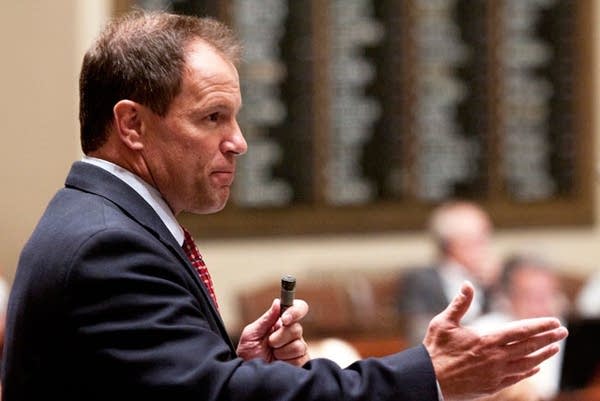School officials turn down lawmakers' repayment offer
Go Deeper.
Create an account or log in to save stories.
Like this?
Thanks for liking this story! We have added it to a list of your favorite stories.

To make up for budget shortfalls, Minnesota lawmakers delayed $1.1 billion in payments to schools in recent years. Some lawmakers are calling for the state to deliver the payments in full this year. But school administrators they'd rather receive an increase in funding from the state this year, and have their IOU paid back over the next several years.
How much the state owes schools could change again on Thursday when the latest budget forecast comes out. By law any budget surplus will be sent to schools to help make good on promised state funds.
Northfield Public Schools Superintendent Chris Richardson is among those who said they would rather the state use its money to provide new funding for schools, money that would likely continue into the future.
"If all the money is taken to pay back the shift in one lump sum, there will be no dollars left over to fund any increases in state aid," Richardson said.
Turn Up Your Support
MPR News helps you turn down the noise and build shared understanding. Turn up your support for this public resource and keep trusted journalism accessible to all.
When lawmakers delayed state funding to fix the budget, some schools had to borrow money to make ends meet. That has not been much of a problem, Richardson said, since the rate for schools to borrow operating funds is less than half a percent.
As much as delaying repayment may make perfect sense to schools, it is not something that has registered with those behind bi-partisan efforts at the Legislature to pay back the money.

Rep. Paul Marquart, DFL-Dillworth, who chairs the House Education Finance Committee, touts a DFL effort to pay back about half of what schools are owed and increase their per-pupil funding.
"I think we can both pay back the shift and also invest in children and schools," Marquart said.
Rep. Kelby Woodard, R-Belle Plaine, proposes legislation to pay the schools the entire $1.1 billion owed, but leaves out the increase in funding.
Woodard believes paying back schools should be done before the state offers schools any increase in funding.
"My take is we need to take care of our current obligations, then we can talk about what those future promises are," Woodard said.
The desire to repay schools sooner rather than later may be a byproduct of last fall's election when both parties decried the budget-balancing tactics that led to the debt and promised to be more fiscally responsible.
To that end, Woodard is also pushing legislation that would make it more difficult for lawmakers to shift school payments in the future.
Gov. Mark Dayton's budget proposal this session offers $344 million in new funding to schools. His plan pays the money owed to schools by 2017.
But the amount actually owed by the state could change, depending on a new state budget forecast that comes out Thursday. If any extra revenue comes into state coffers, by law it goes directly to schools.
Dear reader,
Political debates with family or friends can get heated. But what if there was a way to handle them better?
You can learn how to have civil political conversations with our new e-book!
Download our free e-book, Talking Sense: Have Hard Political Conversations, Better, and learn how to talk without the tension.




